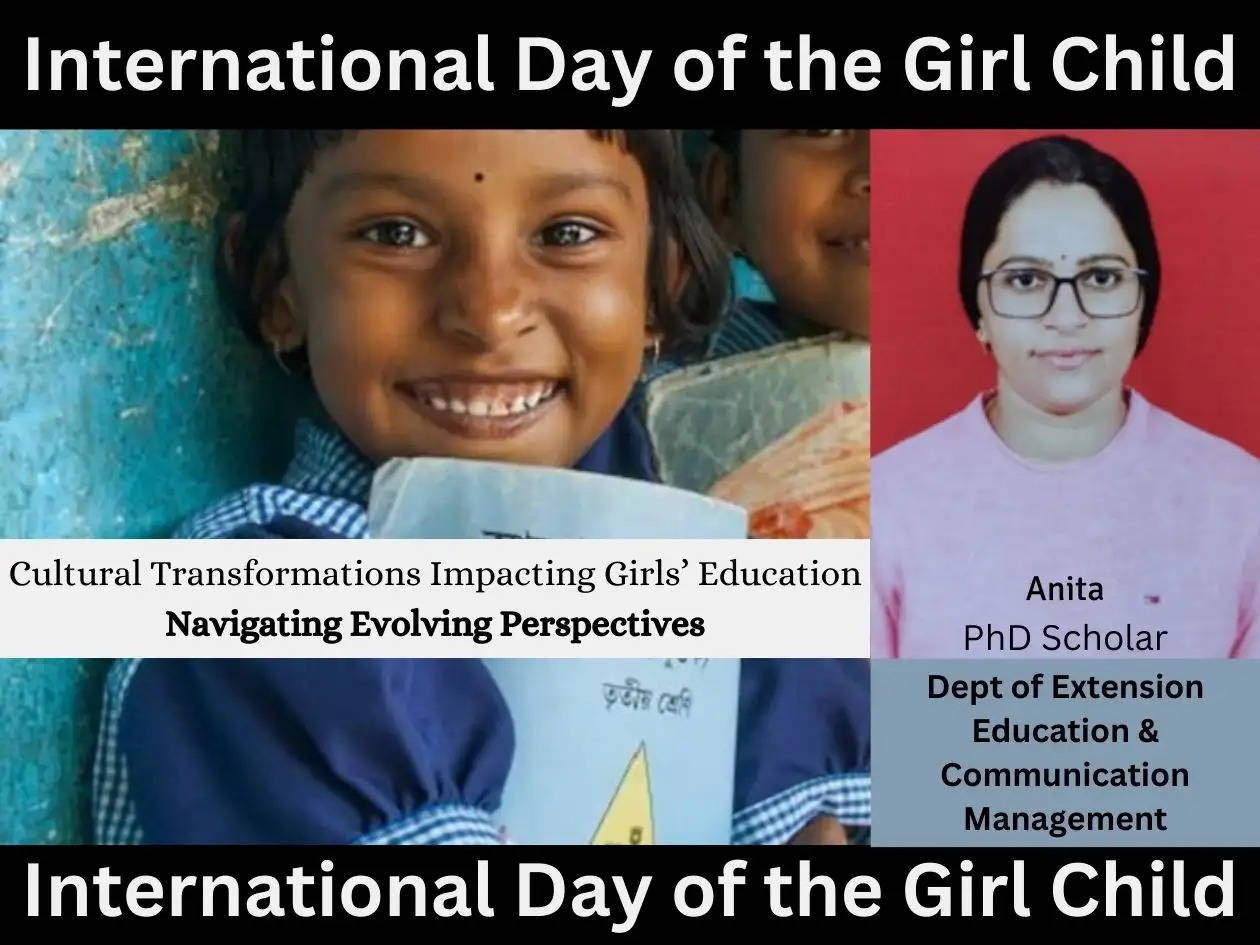Cultural Transformations Impacting Girls' Education: Navigating Evolving Perspectives
On October 11, 2023, the world observed the International Day of the Girl Child, emphasizing girls' education, rights, and gender equality.
Theme 2023- "Invest in Girls' Rights: Our Leadership, Our Well-being," calls for global action to safeguard girls' rights, foster leadership, and advance gender equality. Let's empower girls for a brighter future.
History and Significance:
In 1995, the World Conference on Women adopted the groundbreaking Beijing Declaration. On December 19, 2011, the UN General Assembly declared October 11 as the International Day of the Girl Child, emphasizing the rights and challenges faced by girls. This day aims to promote their well-being, equality, and empowerment globally.
Challenges:
UNICEF data reveals stark challenges for girls globally. Almost 20% can't finish lower-secondary education, and 40% miss upper-secondary education. In low-income countries, nearly 90% of adolescent girls lack internet skills, with boys twice as likely online. Girls aged 5-14 spend 160 million more daily hours on unpaid work than boys. Three in four new HIV infections are among adolescent girls. Alarming rates persist for those married at 15-19, as one in four faces sexual or physical violence from partners. Urgent action is needed to address these disparities and safeguard the rights of girls worldwide.
Cultural Transformations Impacting Girls' Education: Navigating Evolving Perspectives
As of my last knowledge update in September 2021, I can highlight some ongoing and potential cultural changes in girls' child education. However, keep in mind that the information might be outdated, and there could be further developments. Here are some trends and potential changes:
- Increased Focus on STEM Education:
There has been a growing emphasis on encouraging girls to pursue education and careers in science, technology, engineering, and mathematics (STEM). Efforts are being made to break gender stereotypes and promote equality in these fields.
- Digital Learning and Technology Integration:
The integration of technology in education is likely to continue, offering new opportunities for girls' child education. Online resources, e-learning platforms, and digital tools can provide flexible learning environments and help bridge educational gaps.
- Global Advocacy for Girls' Education:
Various international organizations and advocacy groups are working to promote girls' education globally. Initiatives such as "Let Girls Learn" aim to remove barriers to education and empower girls to pursue academic excellence.
- Inclusive Curriculum and Representation:
There's a growing awareness of the importance of inclusive education that represents diverse voices and experiences. Efforts are being made to include more women's achievements and contributions in educational curricula, promoting a more balanced perspective.
- Promotion of Soft Skills:
Beyond traditional academic skills, there's recognition of the importance of soft skills such as communication, critical thinking, and emotional intelligence. Educational programs are likely to evolve to nurture a holistic set of skills in girls.
- Awareness and Addressing Gender-Based Violence:
There's a global movement to address gender-based violence, including within educational institutions. Schools are increasingly expected to provide safe environments for girls, free from harassment and discrimination.
- Flexible Learning Models:
Flexible learning models, including remote and blended learning, gained prominence during the COVID-19 pandemic. These models can be especially beneficial for girls in regions where access to education might be limited due to cultural or logistical reasons.
- Parental and Community Involvement:
Cultural changes often involve shifts in attitudes and perceptions. Efforts to involve parents and communities in supporting girls' education can lead to positive cultural changes, breaking down traditional barriers.
Conclusion
It's important to note that cultural changes are complex and may vary across different regions and communities. Ongoing efforts by governments, NGOs, and grassroots organizations play a crucial role in shaping the future of girls' child education. For the most recent developments, it's recommended to refer to current sources and research.
To join us on Facebook Click Here and Subscribe to UdaipurTimes Broadcast channels on GoogleNews | Telegram | Signal



